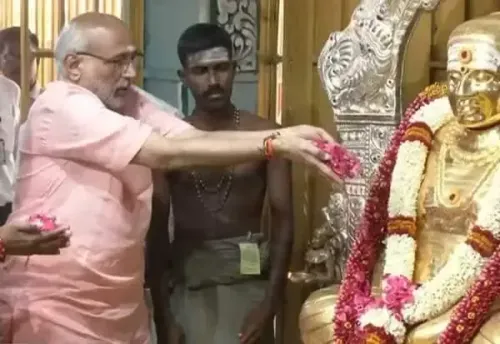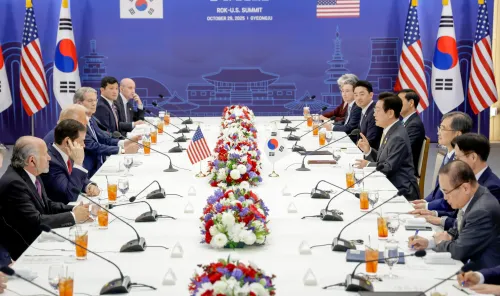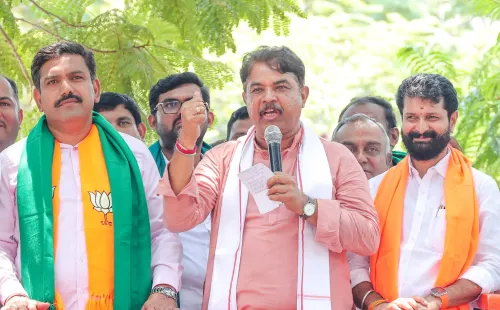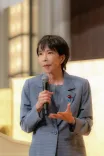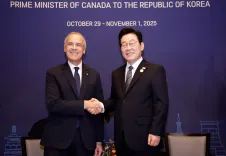Former Diplomat Claims Yunus Has No Intent to Visit India Before China
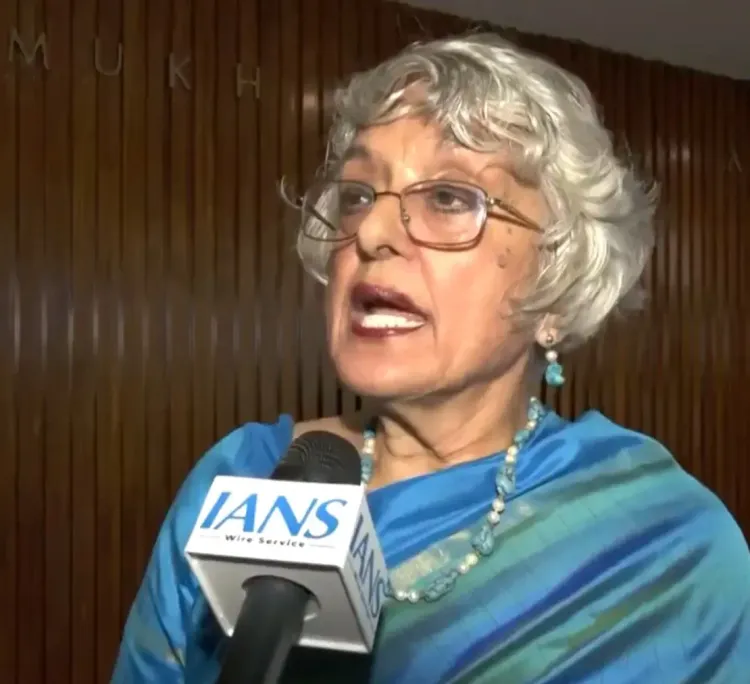
Synopsis
Key Takeaways
- Yunus has not expressed any interest in visiting India.
- India aims to maintain strong relations with Bangladesh.
- Concerns exist regarding minority rights under Yunus' leadership.
- The economic situation in Bangladesh is deteriorating.
- There is unrest between the army and student groups in Bangladesh.
New Delhi, March 26 (NationPress) Veena Sikri, a former High Commissioner of India to Bangladesh, remarked on Wednesday that the claims regarding Bangladesh's interim government's Chief Advisor Muhammad Yunus wishing to visit India prior to China are inaccurate, as he has not shown any interest in such a visit recently.
During an interaction with IANS at a two-day conference in New Delhi focused on the 'Implications of the Political Turmoil in Bangladesh', the former diplomat emphasized that, in contrast to many nations, India consistently aims to foster strong ties with its neighboring countries.
“Yunus has shown no desire to travel to India. He has never made a request to visit. Notably, his foreign advisor Touhid Hossain has already visited China but has not expressed any interest in India. They have not indicated a willingness to engage in meaningful discussions regarding the purported issues that they claim exist between India and Bangladesh, which should indeed be addressed,” Sikri stated.
She highlighted that India and Bangladesh are crucial neighbors, noting that India has always aspired for a positive relationship with Bangladesh. Prime Minister Narendra Modi was among the first leaders to convey good wishes following the establishment of the interim government in Bangladesh last August, expressing a desire to maintain bilateral relations.
“Simultaneously, India has voiced concerns regarding the state of minorities in Bangladesh under the leadership of Yunus, which has deteriorated significantly,” she remarked.
Sikri pointed out that there is a complete breakdown of law and order in Bangladesh, with the country currently facing a precarious economic climate.
“The internal situation in Bangladesh is extremely chaotic. Despite the army being granted magistracy and police powers, the law and order situation remains dire, and they are unable to manage the unrest,” she added.
“The economic circumstances are disastrous. There is a severe shortage of essential commodities, soaring inflation, and the garment factories, which are vital for Bangladesh’s exports, are shutting down one after the other. Numerous factories are closing, resulting in job losses for many,” she continued.
Amid this turmoil, the former diplomat stated that there is significant discord between the army and student factions. Regarding the National Citizens Party formed by student groups, Sikri remarked that they are not genuine students but a “B-team” of the radical group Jamaat-e-Islami, openly advocating for conflict with India and fostering chaos within Bangladesh.
Sikri also noted that the current administration seeks to dismantle the Awami League, as the political support for Sheikh Hasina's party remains strong among 40 percent of voters.
“There is unrest in Bangladesh. The situation has not stabilized, and they are unable to regain control. Public sentiment is increasingly discontented. Even students are expressing dissatisfaction. The media is stifled, numerous senior journalists are imprisoned on murder charges, leading to a highly tumultuous and volatile environment, which we are observing closely,” she concluded.

